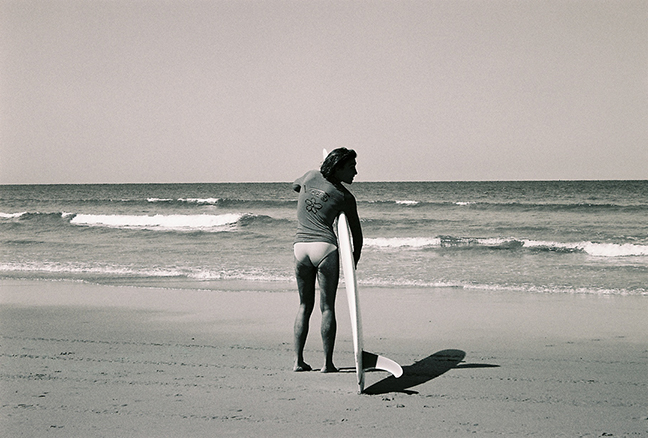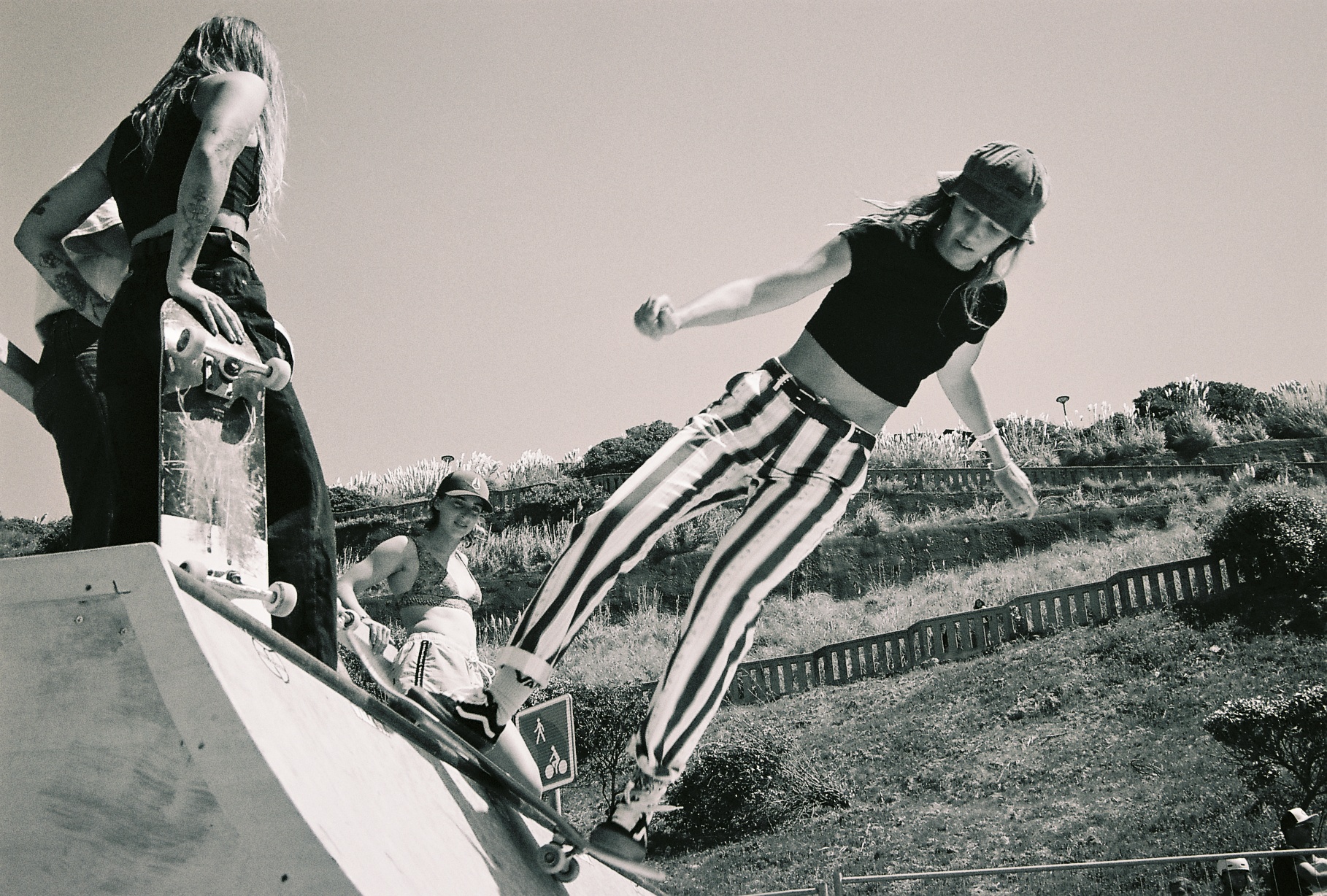Text & Photos: Elisa Routa & Angèle Debuire
“The Queen Classic Surf Festival represents an alternative to surf festivals and opens the realm of possibilities.”
That was the very first time a surf festival grafted social and gender issues into a surfing competition and live music event. In other words, we just witnessed history.
On the 28th and 29th of August, Biarritz hosted the very first edition of the Queen Classic Surf Festival on the Côte des Basques beach, a 100%-female organized surf competition. This was a festival based on diversity and inclusion, a tribute to women and those who don’t recognize themselves in the extreme binary stereotypes that expect women to be hyper-sexualized, and that believe men to be hyper-masculine, most of the time depicted through physical strength and aggression. Over the years, we came to the sad conclusion that the surf industry has not been spared by this toxic tendency to build stereotypical behaviors in the line-up the same way our society encourages men and women to play the same roles, over and over.
Organized by Biarritz-born surfers and friends Amaya Gomis, Aimée & Margaux Arramon-Tucco, the event had a well-defined purpose : gather 12 of today’s best female classic longboarders and those who paved the way for women’s surfing in France such as pioneer and legendary surfer Maritxu Darrigrand, founder of the Roxy Jam event who democratized surf competitions for women, Marie-Pascale Delanne, European vice-champion, mother of surfer Lee-Ann Curren, former professional longboarder and Roxy team manager Hélène Chabaud, former surf champion and athlete Charlotte Caton, among others.
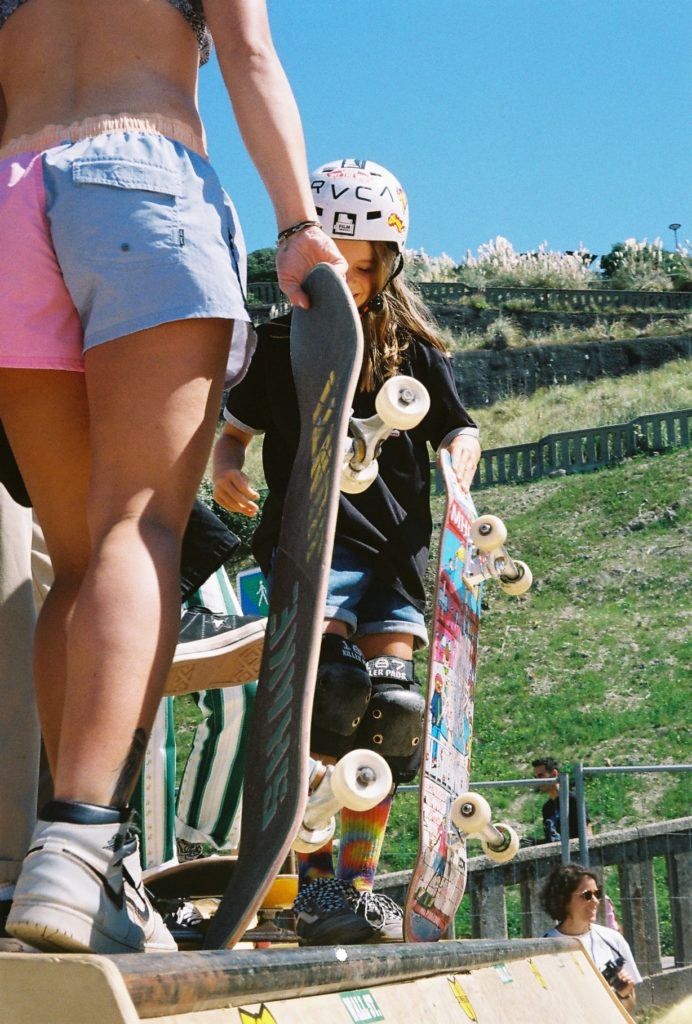
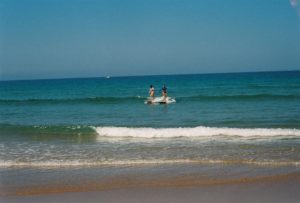
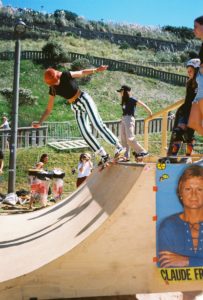
“We wanted to confront our surfing community with conversations they’re not used to having.”
Black umbrellas and large comfy cushions were spread all over the sand. There was music shouting in the speakers and an enthusiastic voice commentating the surf competition taking place in the blue water brushing the rocks. Not so different from any other surf festival, right? But then, suddenly, you’d jump on a booth decorated with rainbow flags from the LGBTQIA+ community (Les bascos). You’d skate on a homemade wooden ramp with committed girls from the SkateHer association, giving women access to skateboarding. After that, you’d talk with a member of the Atherbea foundation fighting violence against women in the Basque country. And on Sunday, you’d attend a live radio program with local Dia Radio engaging in conversations about deep and hot topics like the hypersexualisation of women’s bodies in marketing campaigns in sports as well as the question of homophobia in the line-up.
Founded over notions of creativity, inclusivity and diversity, the Queen Classic Surf Festival managed to cross borders and launch social and societal debates in a place where we’re more used to comparing the size of our… surfboards than addressing activism. “We wanted to confront our surfing community with conversations they’re not used to having,” says art director Amaya Gomis who’s been growing up in the Côte des basques neighborhood. “We also created this festival in order to ask questions.”
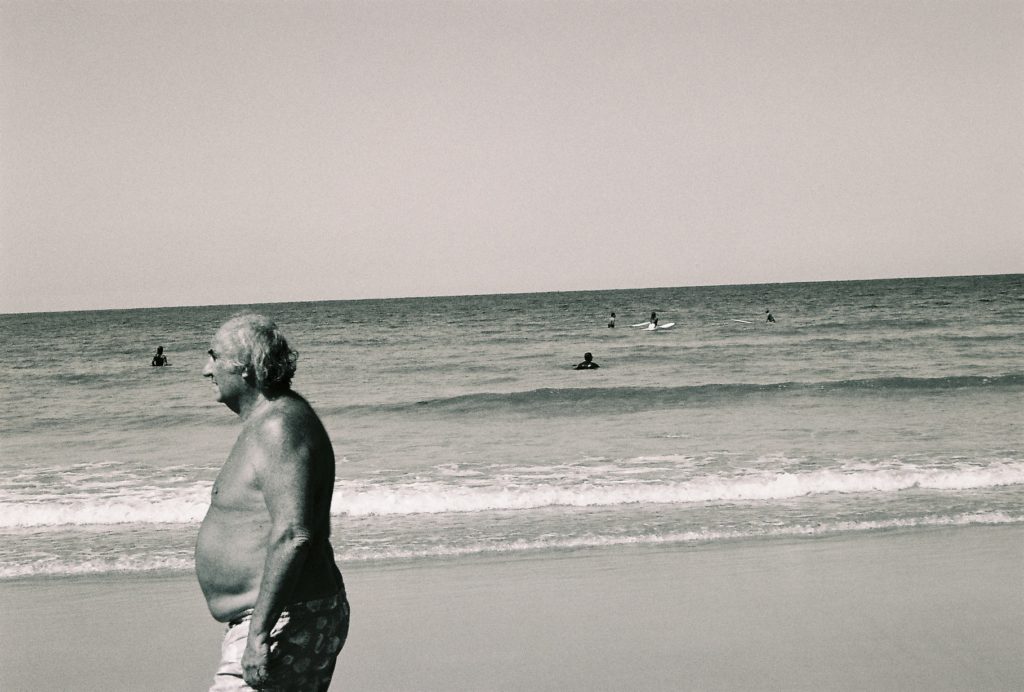
“Surfing is very representative of what’s happening in society.”
As an ode to the French surf culture and to the birthplace of surfing in Europe where the 3 organizers received surfing as a legacy, this very first inclusive surf festival supported by Vans has been able to plug the lack of representation of women in the surfing industry and restore the eternal stereotypes that has ordered, for many decades, women to sit on the beach, as if they didn’t belong to the sea. “As a kid, I remember I identified myself as a boy, not because I felt I was a boy, but because at the time, I didn’t have any female surfing role model that I found super cool. That’s why this festival needs to exist,” explains French artist Agathe Marcé, author of the series of illustrations Big Mama Surf, and invited amongst the 10 local artists to visually express themselves in the hill, their canvas for the weekend. “I didn’t want to be a girl if being a girl meant standing on the beach wearing a bikini, and showing my body. That was a devaluing feeling for me. All I wanted to be was being in the action. And only boys were in the action. As time went on, I realized that feeling was shared by a lot of girls but we were unable to put words to it. It’s a systemic issue. Surfing is very representative of what’s happening in society.”

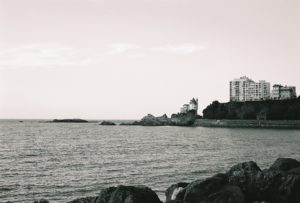
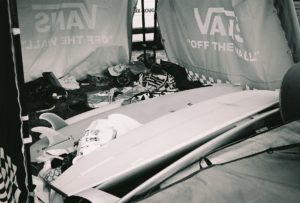
“That’s where the name comes from; from the desire to make the surfing industry evolve, from the desire to break the codes, break the silence, and give the voice to those who usually don’t wear a crown and don’t hold the mic.”
The Queen Classic represents an alternative to surf festivals and opens the realm of possibilities. To the image of La Créole, the French collective known for organizing dance parties and voguing balls in Paris that made the crowd dance on Sunday night, everything is now possible. Born in Harlem in the 1920’s, and exploding as a queer urban dance in the 1980s in New-York, the voguing is now part of the African-American codified culture. You noticed, uh ? How the sound of the words queen and queer are not so far away. That’s where the name of the festival comes from; from the desire to make different worlds collide, from the desire to make the surfing industry evolve, from the desire to break the codes, break the silence, and give the voice to those who usually don’t wear a crown and don’t hold the mic. The female-founded organization is currently working on the next edition of the festival, expected to happen in August 2022 in France.
Long live the Queen!
